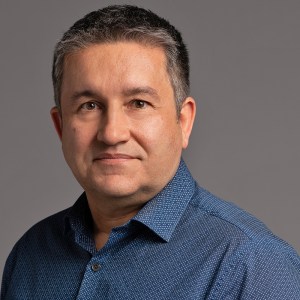
Artificial intelligence is increasingly present in many aspects of daily life, influencing how information is produced, shared, and understood. The upcoming October 9th event, “AI in Our World: Shaping Media, Education, and Science”, will provide attendees with a chance to participate in the evolving conversation around the use of AI in these fields.
Hosted by the UBC School of Journalism, Writing, and Media to celebrate the 25th anniversary of the Master’s of Journalism program, the evening aims to provide a space for nuanced discussion about AI. For those interested in understanding how AI is being used in real-world contexts, and what this might mean for the future, this event provides a chance to engage with current debates and emerging trends.
The event runs from 6 p.m. to 8 p.m. at UBC’s Robson Square Theatre in downtown Vancouver. Attendance is free but registration is required. Please RSVP here.
The speakers will examine how the use of AI tools changes, improves, or detracts from the way we learn, tell stories, teach, and understand the world.
Speakers

Saranaz Barforoush, assistant professor at JWAM, leads the faculty-wide AI policy drafting at the school each year and created the newly established Minor in Journalism and Social Change.
Barforoush completed her Ph.D. at the University of Maryland and worked as a reporter in Iran for over a decade. Her research explores global journalism ethics, political communication, and the impact of new media technologies on journalistic storytelling.

Alfred Hermida, Global Journalism Innovation Lab co-founder and JWAM professor, whose research focuses on news transformation, media innovation, and the impact of AI on journalism.
A professor at UBC’s School of Journalism, Writing, and Media, and co-founder of The Conversation Canada, Hermida’s research focuses on news transformation, media innovation, and the impact of AI on journalism. From his years as a BBC journalist to advancing journalism innovation, Hermida helps audiences make sense of how news works in a digital age.

Nicola Jones, a science journalist and alumna from the first UBC Journalism graduating class, rounds out the panel, bringing an important perspective on how AI is affecting both science and the way it’s communicated.
Nicola Jones is a freelance science journalist who writes and edits stories across all the physical sciences, from anthropology to quantum physics, with climate change and the environment in between. She has contributed to Nature, Hakai Magazine, The New York Times, the Pique and more. Based in Pemberton, on the traditional lands of Lil’wat Nation, Nicola has won numerous awards for her writing, taught science journalism at UBC, and published a non-fiction book for children. She has a BSc in chemistry and oceanography, and a master’s degree in journalism from the University of British Columbia.
The event will be moderated by JWAM’s director, Kamal Al-Solaylee.
Related work on AI and journalism from the Global Journalism Innovation Lab:
- Interview with Alfred Hermida for the GenAI series
- Nieman Lab op-ed on AI in journalism in 2025
- AI in newsrooms study in academic journal Journalism Practice
